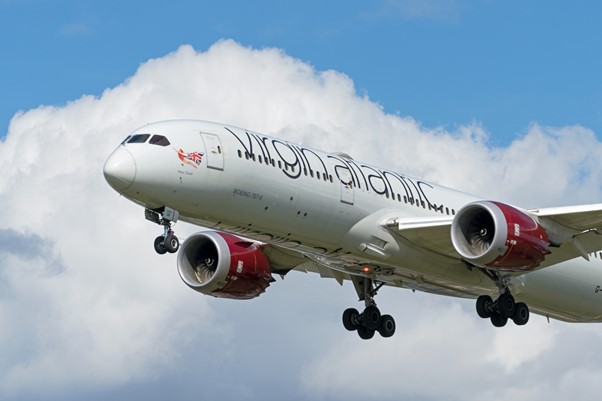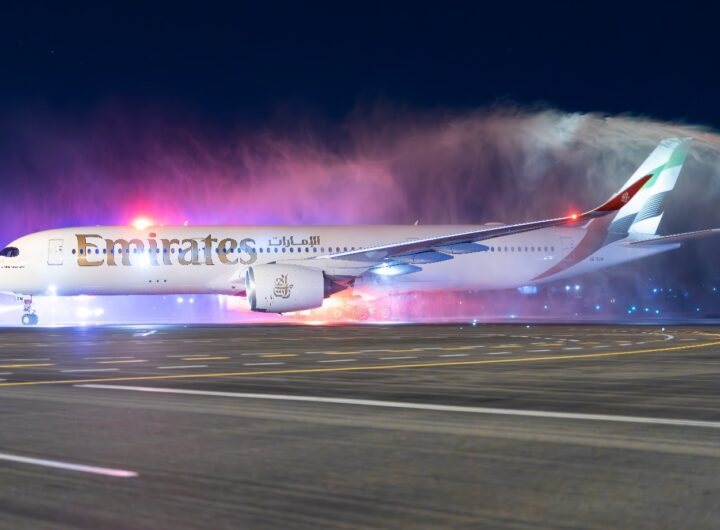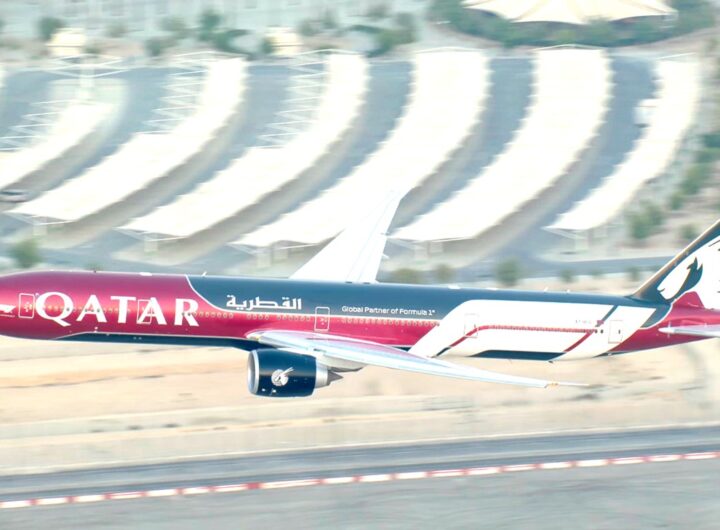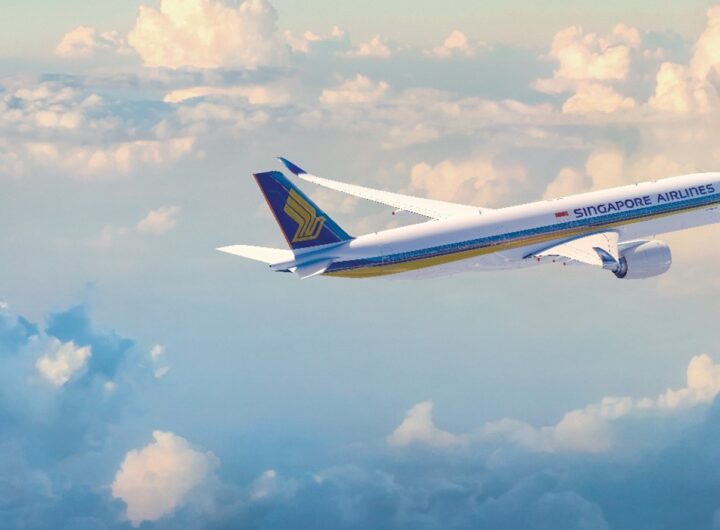
Virgin Atlantic B787-9 – Photo: Shutterstock
British aviation regulators have given the go-ahead for Virgin Atlantic to make history by becoming the first airline to operate a transatlantic flight powered entirely by Sustainable Aviation Fuel (SAF).
On 28 November 2023, Virgin Atlantic wants to demonstrate the viability of flying on 100% SAF by making a transatlantic flight from London Heathrow to New York-JFK Airport. The flight will be recognised via the unique flight number of “VS100.”
Given that current international regulations prohibit using any more than a 50% blend of synthetic fuel with ordinary jet fuel, the CAA had to provide a special authorisation for Virgin Atlantic’s proposed flight.
The permission was granted after the regulator conducted a series of technical evaluations examining various components of the proposed flight, including ground testing with Rolls-Royce on a Trent 1000 engine operating on 100% SAF.
A consortium of companies, led by Virgin Atlantic and that consists of Boeing, Rolls-Royce, BP, and others, have been working together to prepare for the flight and demonstrate SAF as an alternative to regular jet fuel.
On announcing the details of the proposed flight, Rob Bishton, Chief Executive at the UK Civil Aviation Authority, said: “As the UK’s aviation regulator, it’s important that we safely enable the industry to embrace more sustainable practises and push the boundaries of what’s possible to create a greener aviation industry. With this permit, Virgin Atlantic and other companies may demonstrate their dedication to sustainability and indicate that the aviation sector is open to trying cutting-edge innovations.
“Innovation and sustainability are critical areas of work, but they must go hand in hand with safety,” Bishton continued. This is a reminder that collectively, we can drive change, cut emissions, and make the sky greener for years.”
Mark Harper, the UK’s Transport Secretary, emphasised the significance of Virgin Atlantic’s initiative by saying, “The world’s journey to decarbonising flight starts here in the UK, with today’s announcement helped by Government funding so people can continue to travel how they want, in a way that’s fit for the future.” With the first-ever transatlantic flight powered entirely by SAF, the United Kingdom is at the forefront of innovation by transforming waste materials into the fuel of the future that will power our aviation sector.
CEO of Virgin Atlantic Shai Weiss said, “The Civil Aviation Authority’s authorisation to fly Flight 100 marks an important milestone and a huge achievement for all the teams working towards this historic flight. Our consortium partners and the government had to work in radical collaboration for almost a year to get here. We’re dedicated to incorporating SAF into 10% of our operations by 2030, but we need government backing to launch a SAF industry in the UK. If we can make it, we can fly it.”
The UK CAA worked extensively with the consortium throughout the application process and has pledged to keep working with the sector to understand SAF’s performance better.
In response to a challenge issued by the UK Department of Transport last year, Virgin Atlantic was granted up to £1 million in December 2022 to make history by conducting the first transatlantic flight with an aircraft powered solely by SAF.
This is just the beginning of the approval process for the flight; once the permit is issued, Virgin Atlantic can apply for clearance to fly through the airspace of the United States from the Federal Aviation Administration (FAA), Ireland from the Irish Aviation Authority, and Canada from Transport Canada.
SAF is fuel generated from non-petroleum-based renewable sources that can be used as an alternative for or blended with kerosene. No adaptations to jet engines are necessary for using SAF in blends of up to 50% with regular kerosene.
Algae, synthetic fuels from waste hydrogen, and direct carbon dioxide capture are just a few methods that may be used to create SAF. Reports suggest that compared to traditional fossil jet fuel, SAF might cut lifecycle carbon emissions by more than 70% if used to replace jet fuel completely.
 Emirates A350 Debuts in Adelaide with New Premium Economy, Boosting Connectivity and Comfort to Dubai
Emirates A350 Debuts in Adelaide with New Premium Economy, Boosting Connectivity and Comfort to Dubai  Qantas Elevates A380 First Class with New Fine Dining, Aesop Amenity Kits and Bollinger Champagne
Qantas Elevates A380 First Class with New Fine Dining, Aesop Amenity Kits and Bollinger Champagne  Qatar Airways’ New Formula 1 Livery Takes Off: Swizz Beatz–Designed Boeing 777 Tours the World After Qatar Grand Prix Debut
Qatar Airways’ New Formula 1 Livery Takes Off: Swizz Beatz–Designed Boeing 777 Tours the World After Qatar Grand Prix Debut  Jetstar Launches First Direct Brisbane–Cebu Flights: New Gateway from Queensland to One of the Philippines’ Most Beautiful Islands
Jetstar Launches First Direct Brisbane–Cebu Flights: New Gateway from Queensland to One of the Philippines’ Most Beautiful Islands  Singapore Introduces First-Ever Mandatory Sustainable Aviation Fuel Levy Starting 2026
Singapore Introduces First-Ever Mandatory Sustainable Aviation Fuel Levy Starting 2026  Seabourn’s ‘Explore More Event’: Save Up to 15% Plus Shipboard Credit on Ultra-Luxury Cruises
Seabourn’s ‘Explore More Event’: Save Up to 15% Plus Shipboard Credit on Ultra-Luxury Cruises  Silversea Wave Season 2026: Save Up to 40% on Luxury Cruises to All Seven Continents
Silversea Wave Season 2026: Save Up to 40% on Luxury Cruises to All Seven Continents 